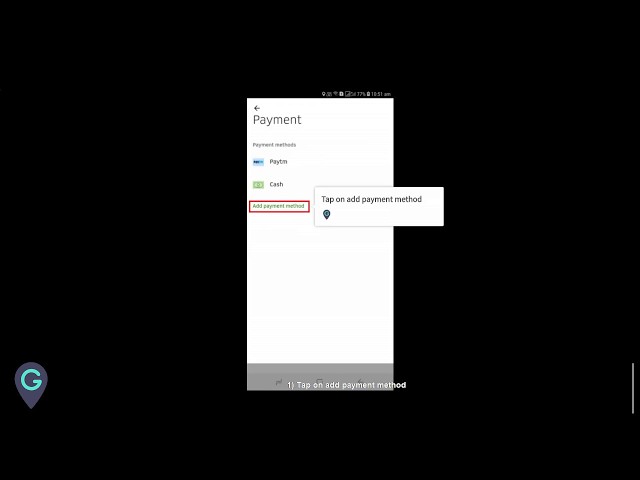How To Break Bread With Scholars: Tips For Effective Academic Engagement

Table of Contents
Understanding Academic Culture and Networking Etiquette
Successfully "breaking bread with scholars" begins with understanding the nuances of academic culture and networking etiquette. This involves knowing how to interact professionally at various events and utilizing online platforms effectively.
Navigating Professional Events (Conferences, Workshops)
Academic conferences and workshops are prime opportunities for networking. To make the most of these events, remember these key strategies:
- Actively listen during presentations: Show genuine interest and engagement. This demonstrates respect and provides opportunities for thoughtful interaction.
- Ask thoughtful questions: Prepare insightful questions beforehand, showcasing your knowledge and encouraging further discussion. Avoid generic or overly simplistic queries. For example, instead of asking "What were your findings?", try "Your findings on X challenged the prevailing theory on Y; can you elaborate on the implications for future research?"
- Approach speakers after sessions: Expressing your appreciation for their presentation and engaging them in brief conversation can create a lasting impression. Be mindful of their time constraints, however.
- Attend social events: These informal gatherings are excellent for building rapport and establishing connections beyond formal presentations. Don't be afraid to initiate conversations.
- Don't dominate conversations: Remember that networking is a two-way street. Listen actively, ask engaging questions, and allow others to share their thoughts and experiences.
Utilizing Online Platforms for Academic Networking
The digital age has transformed academic networking. Leveraging online platforms effectively can significantly expand your reach and opportunities.
- Engage on relevant social media platforms: Platforms like Twitter, LinkedIn, and ResearchGate are crucial for connecting with scholars, sharing your research, and participating in relevant discussions. A professional online presence is essential.
- Join online communities and forums: Participating in discussions and sharing your expertise can establish you as a thought leader in your field and help you connect with like-minded scholars.
- Participate in online discussions: Contribute meaningfully to online conversations, offering your insights and engaging with other scholars' perspectives.
- Follow leading scholars in your field: Staying updated on their research and engaging with their work can pave the way for future collaborations or mentorship opportunities. Consider using relevant hashtags to find relevant conversations.
Initiating and Maintaining Meaningful Connections
Once you've identified potential collaborators or mentors, initiating and maintaining meaningful connections is crucial. Authenticity and genuine engagement are key to building strong, long-lasting relationships.
The Art of the Academic Introduction
Making a positive first impression is vital. When introducing yourself, remember:
- Prepare a concise and compelling introduction: Clearly state your name, affiliation, and research interests in a way that highlights your expertise and shared interests with the other person.
- Highlight shared interests and research areas: Identifying common ground instantly establishes a connection and facilitates a more meaningful interaction.
- Be respectful and concise: Respect the other person's time and avoid lengthy monologues.
- Offer a genuine compliment on their work: Expressing sincere appreciation for their research demonstrates your engagement and respect. For example, "I was particularly impressed by your recent work on X, especially your innovative approach to Y."
Building Relationships Through Meaningful Interactions
Sustaining relationships requires consistent effort and genuine engagement. Here's how:
- Follow up after initial contact: Send a brief email or message expressing your appreciation for the conversation and reiterating your shared interests.
- Share relevant articles and resources: Demonstrating your awareness of their work and your willingness to contribute to their research is a powerful way to build rapport.
- Offer assistance when appropriate: If you have expertise that can be helpful to their research, offer to collaborate or provide assistance.
- Be mindful of time constraints: Respect the other person's busy schedule and avoid overwhelming them with requests or lengthy communications.
- Seek mentorship opportunities: If you admire a particular scholar's work, consider reaching out and expressing your interest in mentorship.
Leveraging Academic Engagement for Career Advancement
Effective academic engagement directly contributes to career advancement. It opens doors to mentorship, collaboration, and increased research visibility.
Securing Mentorship and Collaboration Opportunities
Mentorship and collaboration are vital for professional growth.
- Identify potential mentors: Look for scholars whose research interests align with yours and whose work you admire.
- Craft a well-written mentorship request: Clearly articulate your goals, your reasons for seeking mentorship, and what you hope to gain from the relationship.
- Actively participate in collaborations: Contribute meaningfully to joint projects, demonstrating your commitment and expertise.
- Seek feedback on your work: Constructive criticism is essential for professional development; actively solicit feedback from mentors and collaborators.
Boosting your Research Visibility and Impact
Strong networking contributes significantly to the impact of your research.
- Present your research at conferences: Presenting your work allows you to connect with potential collaborators and disseminate your findings to a wider audience.
- Publish in reputable journals: Publishing in high-impact journals increases your visibility within the academic community.
- Network with editors and reviewers: Building relationships with journal editors and reviewers can increase your chances of publication and provide valuable feedback on your work.
- Utilize social media to disseminate your findings: Sharing your research on platforms like Twitter and ResearchGate can significantly expand its reach.
Conclusion
Effectively "breaking bread with scholars" requires understanding academic culture, initiating meaningful connections, and leveraging those connections for career advancement. By actively participating in conferences, utilizing online platforms strategically, and engaging in meaningful interactions, you can build a strong network of collaborators and mentors. By mastering the art of breaking bread with scholars effectively, you can unlock countless opportunities for collaboration, mentorship, and career advancement. Start building your network and improve your academic engagement today! Strengthen your scholarly network and watch your academic career flourish.

Featured Posts
-
 Steven Spielbergs War Movies 7 Must See Films Saving Private Ryan Is Out
May 08, 2025
Steven Spielbergs War Movies 7 Must See Films Saving Private Ryan Is Out
May 08, 2025 -
 Extreme Price Increase At And T On Broadcoms Proposed V Mware Acquisition
May 08, 2025
Extreme Price Increase At And T On Broadcoms Proposed V Mware Acquisition
May 08, 2025 -
 9 4000 2 360
May 08, 2025
9 4000 2 360
May 08, 2025 -
 Xrp Price Prediction Can Xrp Rise Further After A 400 Surge
May 08, 2025
Xrp Price Prediction Can Xrp Rise Further After A 400 Surge
May 08, 2025 -
 Bitcoin Fiyati Son Dakika Guencellemeleri Ve Analizler
May 08, 2025
Bitcoin Fiyati Son Dakika Guencellemeleri Ve Analizler
May 08, 2025
Latest Posts
-
 Kenya Uber Update Cashback Offers And Increased Delivery Ride Opportunities
May 08, 2025
Kenya Uber Update Cashback Offers And Increased Delivery Ride Opportunities
May 08, 2025 -
 How To Pay For Uber Auto Rides A Guide To Upi And Alternatives
May 08, 2025
How To Pay For Uber Auto Rides A Guide To Upi And Alternatives
May 08, 2025 -
 Ubers Kalanick Admits Abandoning Product Strategy Was A Mistake
May 08, 2025
Ubers Kalanick Admits Abandoning Product Strategy Was A Mistake
May 08, 2025 -
 Get Cashback With Uber Kenya Good News For Drivers And Couriers Too
May 08, 2025
Get Cashback With Uber Kenya Good News For Drivers And Couriers Too
May 08, 2025 -
 Uber Auto Understanding Payment Methods After Cash Removal
May 08, 2025
Uber Auto Understanding Payment Methods After Cash Removal
May 08, 2025
